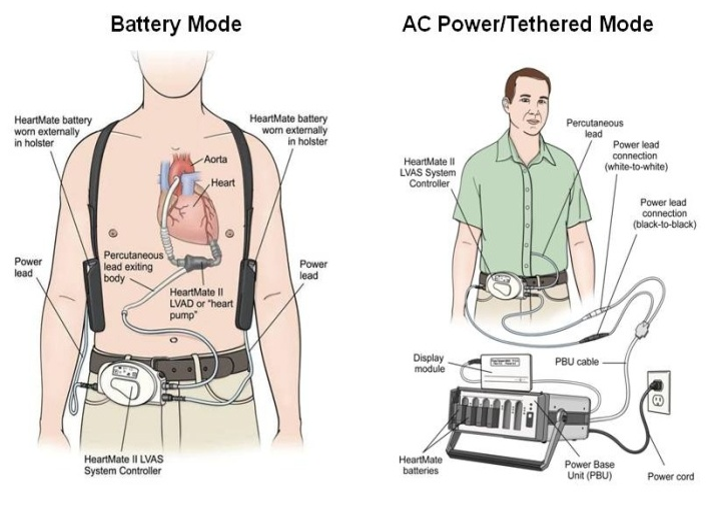The CSCD Center solicits applications for Pilot Research Projects.
Pilot Project 1 (PP1): An Evaluation of Mobile Care App as Self-Management Tool in Patients with Left-Ventricular Assist Devices. PI, Jesus Casida PhD, RN, School of Nursing, Co-I, Francis D. Pagani MD, PhD, Surgical Director, Adult Heart Transplantation and Director, Center for Circulatory Support Cardiovascular Center, and Co-I, James Aikens, Department of Family Medicine
 Despite the refinement in MCS technology, achieving this goal remains a problem for patients
and their caregivers due to the complexity of managing the LVAD in home settings.
Tasks and procedures performed daily by patients and/or their caregivers are directed at
ensuring the functionality of the LVAD components, troubleshooting varying levels of alarms,
and maintaining the patients' overall health.
Studies have shown that at 6 months post hospital discharge, patients are dependent on their
caregivers for implementing the LVAD regimen. During this period, they are overwhelmed with
the complexity of the regimen, and have low levels of self-confidence (i.e., self-efficacy)
with LVAD care at home. Some investigators have speculated that low levels of self-efficacy
may have resulted in low adherence to the regimen. Low adherence may have contributed to the
high incidence of LVAD complications causing 45% to 70% of hospital readmissions within 6
months post discharge.
To improve patients' and caregivers' self-efficacies and adherence to the complex LVAD
regimen, our research team recently developed the UM-VAD Care Mobile App. The App is used to
support patients and/or caregivers to correctly and confidently implement the regimen.
It alerts them to complete the regimen, and allows the healthcare provider (i.e., LVAD
coordinator) to assess abnormal results or mechanical issues requiring intervention. Additionally, the App provides skill reviews of content (e.g., video demonstration) about
technical and non-technical tasks for LVAD self-management (SM).
The purpose of this study is to evaluate the feasibility of the UM-VAD Care App as a SM tool
for LVAD patients and/or caregivers, and to pilot test it in an out-patient MCS program.
Specific aims are:
Despite the refinement in MCS technology, achieving this goal remains a problem for patients
and their caregivers due to the complexity of managing the LVAD in home settings.
Tasks and procedures performed daily by patients and/or their caregivers are directed at
ensuring the functionality of the LVAD components, troubleshooting varying levels of alarms,
and maintaining the patients' overall health.
Studies have shown that at 6 months post hospital discharge, patients are dependent on their
caregivers for implementing the LVAD regimen. During this period, they are overwhelmed with
the complexity of the regimen, and have low levels of self-confidence (i.e., self-efficacy)
with LVAD care at home. Some investigators have speculated that low levels of self-efficacy
may have resulted in low adherence to the regimen. Low adherence may have contributed to the
high incidence of LVAD complications causing 45% to 70% of hospital readmissions within 6
months post discharge.
To improve patients' and caregivers' self-efficacies and adherence to the complex LVAD
regimen, our research team recently developed the UM-VAD Care Mobile App. The App is used to
support patients and/or caregivers to correctly and confidently implement the regimen.
It alerts them to complete the regimen, and allows the healthcare provider (i.e., LVAD
coordinator) to assess abnormal results or mechanical issues requiring intervention. Additionally, the App provides skill reviews of content (e.g., video demonstration) about
technical and non-technical tasks for LVAD self-management (SM).
The purpose of this study is to evaluate the feasibility of the UM-VAD Care App as a SM tool
for LVAD patients and/or caregivers, and to pilot test it in an out-patient MCS program.
Specific aims are: